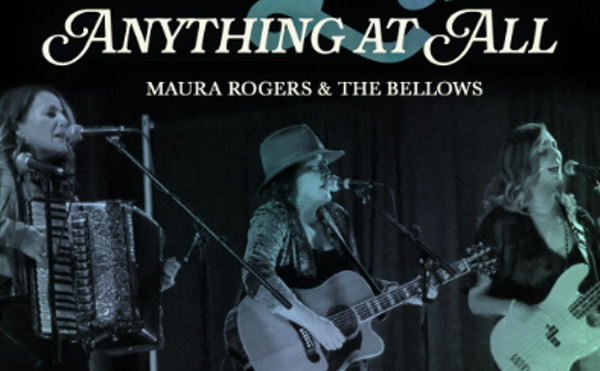"I like it because it's only one chord," Zuniga says. "Whenever I'm teaching someone guitar, I always teach them the A chord. Then I go, 'Now you can play "Helen Wheels." ' "
Fastball is definitely one of this year's biggest surprises, and the trio of Zuniga, drummer Joey Shuffield, and bassist/vocalist Tony Scalzo have one of 1998's biggest hits with "The Way." And as long as we're talking about Paul McCartney, it bears mentioning that "The Way" borrows the melody of "Besame Mucho," the 1930s and 1940s standard that McCartney used to cover in the early days of the Beatles. A good melody, as they say, shouldn't go to waste. That's why Fastball and its runaway hit album, All the Pain Money Can Buy, have had such a good year.
All the Pain Money Can Buy is actually Fastball's second album. Make Your Mama Proud, their 1996 debut, might have been "full of potential," but it sank into oblivion faster than a Roger Clemens fastball. The Fastball tale, then, can be considered a rags-to-riches story.
"Yes, it is," Zuniga agrees. "I don't know where the riches come in, though. In the music business, you get paid, but you get paid very late. They have to launder the money first," he adds with a laugh. "It is a rags-to-riches story," Zuniga continues. "It's a pretty good story, actually. Three boys from all over learn some chords, buy a van, and tour like crazy. I don't know. They sign with a label [Hollywood] that was once the laughingstock of the industry, and somehow, against all odds, we had a hit song. I can't believe it.
"It's pretty weird, but when it happens to you, it's like something completely out of your control. It's like leaving a cigarette burning. I like the analogy of rolling a bowling ball down the lane, and instead of knocking down one or two pins, you knock out the whole back wall of the bowling alley. You're just like, Wow, how did that happen? Once you let go of that ball, it's sort of beyond your control."
The trio got together when Austin native Shuffield (formerly with the Wild Seeds) introduced his buddy Zuniga (a native of Laredo) to Scalzo, a veteran of Orange County's punk scene. Dubbing themselves Magneto USA, they toured like crazy and eventually were signed to Hollywood Records. Right before releasing Make Your Mama Proud, they changed their name to Fastball. It was the vibrant Austin live music scene that gave the group ample opportunities as well as venues in which to work on its sound.
"I had moved there years before and had lived there a long time," Zuniga recalls. "I lived there from 1984 all the way to 1992. Then I moved to California for a couple of years, and I could not get anything going. I met bands to play with, but it was all pretty lame stuff. So I thought, Wow, I should just go back to Austin.
"It's so much easier to put a band together there. It's a small music community, and you can meet a lot of people, and bands are always breaking up. It's pretty easy to get a group of people together. It's pretty friendly there, and it's easy to get a gig. The music press is pretty supportive. I mean, they'll write about you in your infancy, so that makes you feel good and important. It encourages you that you're doing something important or worthwhile."
Zuniga understands better than anyone that Fastball's fate was in the hands of radio programmers. Though Fastball made a solid album with All the Pain Money Can Buy, there was no guarantee the group would receive airplay. "I can't complain," Zuniga says. "I mean, ['The Way'] changed our whole lives.
"Most records that are released are going to end up in the cutout bins," he explains. "That's just the statistics, and statistics are usually pretty incredible. But they're honest. They're real. And statistically, of all the records that are released in the United States, there's something like 10 percent or 5 percent that account for 90 percent of the sales."
How, then, do people ever know about the other 90 or 95 percent of the records released?
"They don't, until they get on the radio," Zuniga replies. "God, radio programmers do so much research and whatnot."
This ain't rocket science. "It's rocket science to them, though," Zuniga adds, "and there's nothing you can do about it."
"I think it's like the death of music, in a way," Zuniga concludes. "That accounts for the ridiculous fragmentation we have on the radio. I mean, I would rather hear a station that played Guns N' Roses next to Bobby Brown next to the Knitters. That way you get to hear everything and you get a good musical education. I would like a cross section of all the genres, so I could be more informed about what's going on.
"But," he says, "it's not going to be that way. You just have to go out and buy it for yourself."
Fastball. Saturday, November 7, Peabody's DownUnder, 1059 Old River Rd., $10 ($12 day of show), Ticketmaster 216-241-5555.












